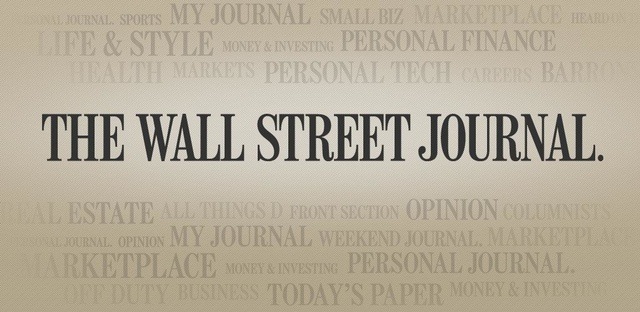 The Wall Street Journal has had a spotty record in covering the corporate scandals that emanated from the stock market bubble of the late 1990’s, as noted earlier here and here) in regard to its coverage of the Enron case.
The Wall Street Journal has had a spotty record in covering the corporate scandals that emanated from the stock market bubble of the late 1990’s, as noted earlier here and here) in regard to its coverage of the Enron case.
In the better-late-than-never department, the WSJ Editorial Board published this editorial ($) today entitled “Enron Overkill” that decries the Enron Task Force’s hyper-aggressive use of the honest services statute to obtain unjust convictions of the four Merrill Lynch executives in the Nigerian Barge case, which resulted in a rebuke of the Task Force’s tactics from the Fifth Circuit Court of Appeals.
The WSJ editorial criticizes the federal government’s broad use of the vague honest services statute as a trump card in white-collar criminal prosecutions. But after failing to place the issue in the context of the more troubling trend of the government wrongfully prosecuting business interests, the WSJ editorial ends with this doozy of an observation about the Enron Task Force:
[The] Enron Task Force has a good record overall, bringing solid fraud cases and winning some 30 convictions. In the Merrill case, however, it stretched the law to send a political message — and has now received a well deserved rebuke.
The WSJ lauds the Task Force for doing a good job overall, but notes that they messed up in this one particular case and got caught?
In what parallel universe is America’s leading business newspaper living? Does the WSJ Editorial Board really believe that the following amounts to “a good record overall?”:
The Task Force’s inflammatory public relations campaign demonizing anything having to do with Enron;
The Task Force’s poor trial record involving former Enron executives (four convictions out of nine Enron executives tried to date) in a venue severely-biased against such executives;
The Task Force’s questionable tactic of bludgeoning former Enron executives into plea bargains;
The Task Force’s disingenuous market loss arguments in connection with the sentencings of the four Merrill Lynch executives in the Nigerian Barge case, which argument contradicted the Justice Department’s position in a case pending before the U.S. Supreme Court at the time;
The overreaching nature of the Task Force’s decision to prosecute Arthur Andersen out of business, which the Supreme Court noted in its unanimous reversal of that conviction, and the incalculable cost of such prosecutions;
The Task Force’s elicitation of false testimony from former Enron executive Ken Rice, its key witness in the Task Force’s miserably failed first Enron Broadband prosecution;
The Task Force threats toward two witnesses in the Broadband trial — Beth Stier and Lawrence Ciscon — who testified favorably for the defense in the first Enron Broadband trial and a Task Force prosecutor’s violation of the judge’s instruction not to question witnesses on certain subjects during that trial;
The Task Force’s dubious policy of fingering potential defense witnesses as either unindicted co-conspirators or targets of the Enron criminal investigation to deter such witnesses from testifying for defendants in the Enron criminal trials, including the strong evidence that the Task Force threatened witnesses favorable for the defense in the Lay-Skilling trial;
After bagging the conviction of Ken Lay, the Task Force prosecutors bragging to the NY Times that they had trumped up a weak case against Lay in order to get a conviction of the former Enron chairman;
The Task Force’s characterization of “harmless error” in regard to strong evidence of jury misconduct in the trial of former Enron Broadband executive Kevin Howard;
The appallingly arrogant “end justifies the means” attitude expressed by the former head of the Enron Task Force in regard to the prosecution of Arthur Andersen and other Enron-related cases;
The negative effect that the Justice Department’s criminalization of business mindset is having on how foreigners perceive the risk of investment in American business markets; and
The negative ripple effect that the Task Force’s tactics have had on such fundamental rights as the attorney-client privilege and the presumption of innocence in prosecutions of business executives.
If the WSJ editorial board considers the foregoing “a good record overall,” then I shudder to think about the carnage to justice and the rule of law that would result from a record in such matters that the WSJ would consider poor.
In reality, the WSJ has fumbled the ball badly in defending business from the federal government’s increasing criminalization of corporate agency costs in the post-Enron era. A few editorials sniping at isolated issues relating to that criminalization is not going to change the WSJ’s abject failure in that regard.

I couldn’t agree more. At the same time, the WSJ piece in question is probably one of the first main stream efforts to cry foul about the Enron Task Force’s tactics, if only focusing on a single action and a single abused power — i.e. the advocacy of “overbroad legal theories.”
In an essay titled “Overextending the Criminal Law” by Erik Luna included in the 2004 Cato Institute published book “Go Directly to Jail; the Criminalization of Almost Everything,” Luna remarks “The business classes, normally regarded as conservative, demonstrate a quiescence that is remarkable considering their role as the primary targets of [the criminalization of almost everything] movement.” Is it quiescence or something closer to outright fear?
The WSJ changes its tune on federal prosecutors
What a difference a year makes. Last June, the WSJ said: The Justice Department has . . . built a record in business fraud cases that has held up in court on Enron, WorldCom and Adelphia.I said: This praise of